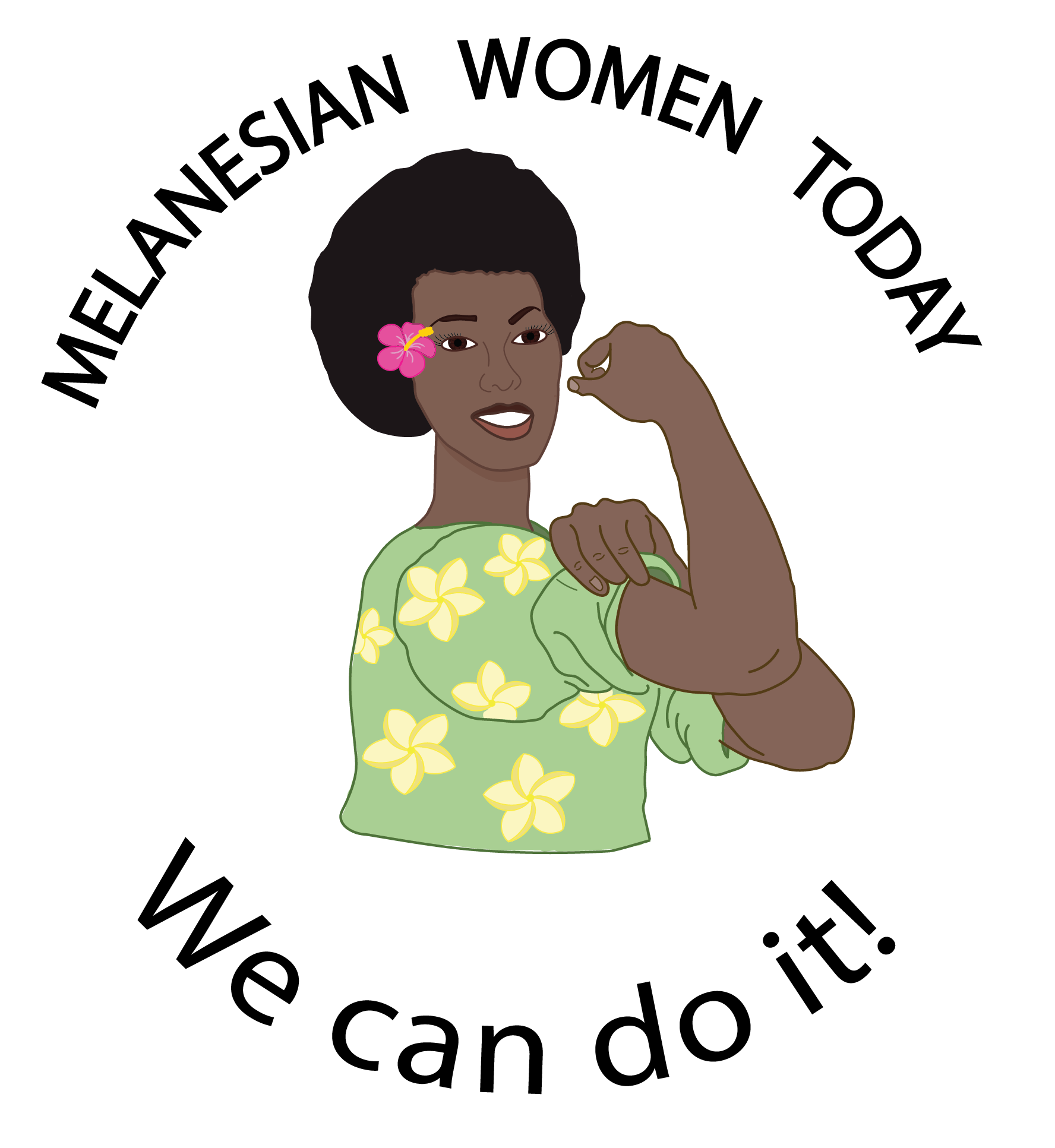The Ripple Effect of Community Partnership: Delivering Hundreds of Books to a Remote School in Papua New Guinea
The impact of one book on a community is incalculable. But what about 400? Over a two-year process, Melanesian Women Today has diligently worked to provide an essential resource to a small, remote school of Papua New Guinea. Books are a key component to literacy, education, and emotional intelligence; when inaccessible literature becomes an obstacle, how do we combat it?
In 2020, Odyssey Middle School on Bainbridge Island became involved in what would become an exemplary service project aimed to fill the The Kelkei Elementary and Adult Literacy school’s community library and bolster its low literacy rates. The passion for this project came out of the classroom of 7th and 8th graders who imagined how students, like themselves, lacked the novels, fiction, fantasy, poetry, and stories that enriched their everyday lives.
The literacy rate in Papua New Guinea is an estimated 62%, which means that a large portion of the population faces the challenges that come with illiteracy. Illiteracy remains a global issue that further impoverishes communities and perpetuates a cycle of low education investments that result in weak employment, health, and development infrastructure. In contrast, the correlation between literacy and higher standards of living is undeniable. Melanesian Women Today continues to think globally about why tackling illiteracy should be an international priority, while choosing to act locally by partnering with Kelkei.
The school is part of the Jiwaka Province, with around 300,000 inhabitants, and a rich history of indigenous culture and language (over 800!). This province of Papua New Guinea represents a diverse, historically self-sufficient way of life which has recovered from colonial rule but still struggles from lack of crucial resources, especially regarding education.
The call to action spread across Bainbridge in a successful book drive. The book drive took place in February and March of 2020 and accumulated a collection of 379 books, but the momentum to send them to the school was at an impasse by the COVID-19 pandemic.
The hundreds of books and the library project were temporarily immobilized by the complications that the pandemic brought. But after a full year, the teachers and students were ready to resume the project in a creative, unexpected way.
Heather Visser, an Odyssey parent connected the service project with Holland America Cruise Line who agreed to deliver the books to Papua New Guinea free of charge. The unlikely collaboration allowed the hundreds of pounds of books to be transported, a task that had proven to be increasingly challenging before the generous agreement. The image taken of dozens of boxes of books being rolled onto the ship, the students and volunteers following their journey in the background, invokes the satisfying feeling of movement regained, of one community responding to the needs of another.
The Kelkei School library aimed to serve as a buoy of connection to the world outside of the remote community; how invaluable is a hub of education for a place with sparse television, internet and sporadic access to global news? When a communal effort to build a library to support the school was successful- the community now faced a new problem- what was a library with no books? The book project coordinator that MWT would later work with was struggling to acquire the funds and contributions to fill the library. This was the point where Meré Sovick, founder of Melanesian Women Today, was contacted by a small elementary school seeking books, and became inspired to get involved. Reaching out was the first step to the relationship Bainbridge and Kelkei forged, of students to students, and school to school.
The school is located in the western highlands of the province, a largely inaccessible, mountainous-terrain. The complex topography of the region restricts many of the rural schools from receiving sufficient learning resources- the reason why Kelkei’s library was empty. At the same time, the country of Papua New Guinea, although a resource-rich country, almost 40 percent of Papua New Guinea’s (PNG) population lives in poverty and has been imperiled by climate change and for this reason, projects like MWT’s that encourage visibility for vibrant communities in need of support are important.
When the project was finally able to restart again post-covid quarantine, a new group of students was excited to be involved. After the books were able to be transported from Washington to Alotau, more transportation goodwill came from Air Niugini, the local airline, agreeing to fly the crates to Lae, another Papua New Guinea city. From Lae, the books still had a long way to go through the elevated terrain before reaching the school's library. Pauline Woti, Director of Kelkei Elementary and Adult Literacy School and her husband John committed to driving the books themselves. It took 7 hours.
When their truck arrived at the loading station, they were greeted by the village and many mothers of the students, who hand-transported the boxes all the way to the school. Barefoot, they walked the boxes and their books to their new home.
When the books finally arrived, there was a perspective of dominos falling: the cruise line, the airline, the long drive, the peoples trek, all to replete the walls of the Kelkei school Library, all to strengthen and restore local literacy and learning through reading. Méré describes it as a ripple effect: “It had an effect on the students, but also on the many people who got involved because they too wanted to help. The ripple effect can be felt by the village of Kendeng where the school is. They have been so impacted by this project that they are planning a huge event that will bring people together from nearby villages to celebrate.” The joy of the community was shared by the group of hardworking students at Odyssey, who were able to see the journey of the books come to completion.
The work to ensure that schools in less visible parts of the world receive the resources they need is not over, and to address this, we need partnership. Often we will find that our most valuable resource is each other.
Story By Sayia McElderry
“The official handing over ceremony marks not only a milestone for our school but a catalyst for change in our community.” Pauline Woti
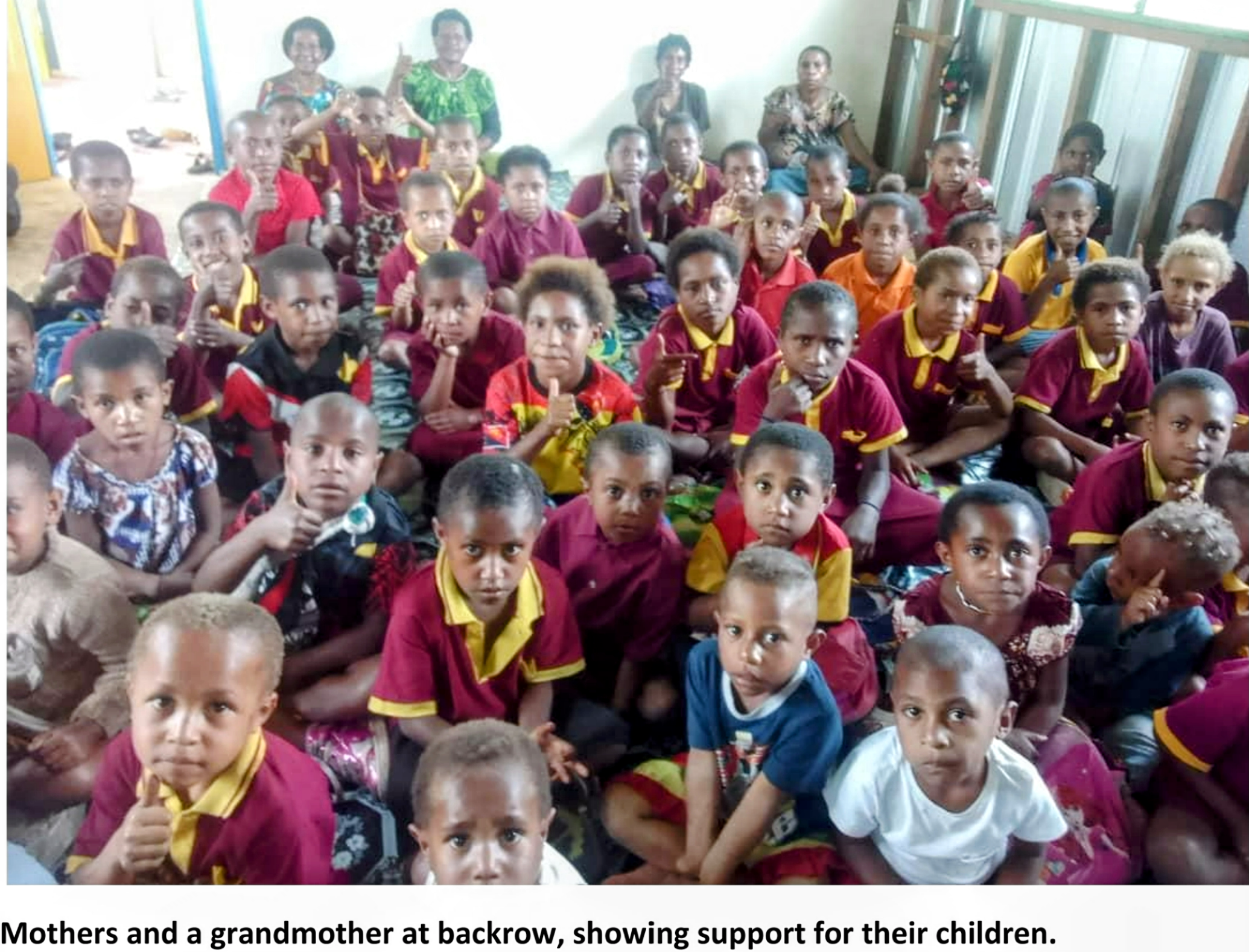
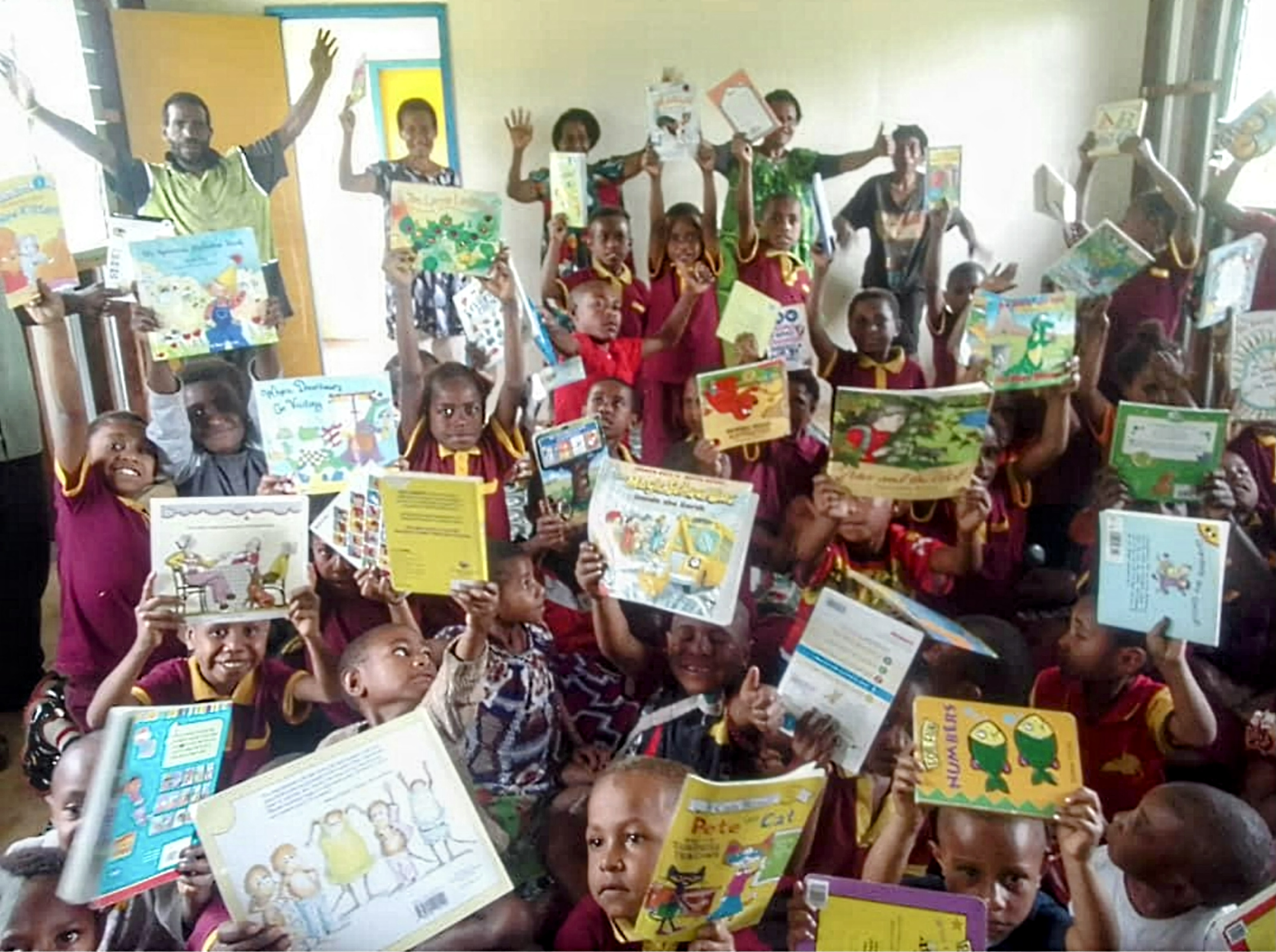
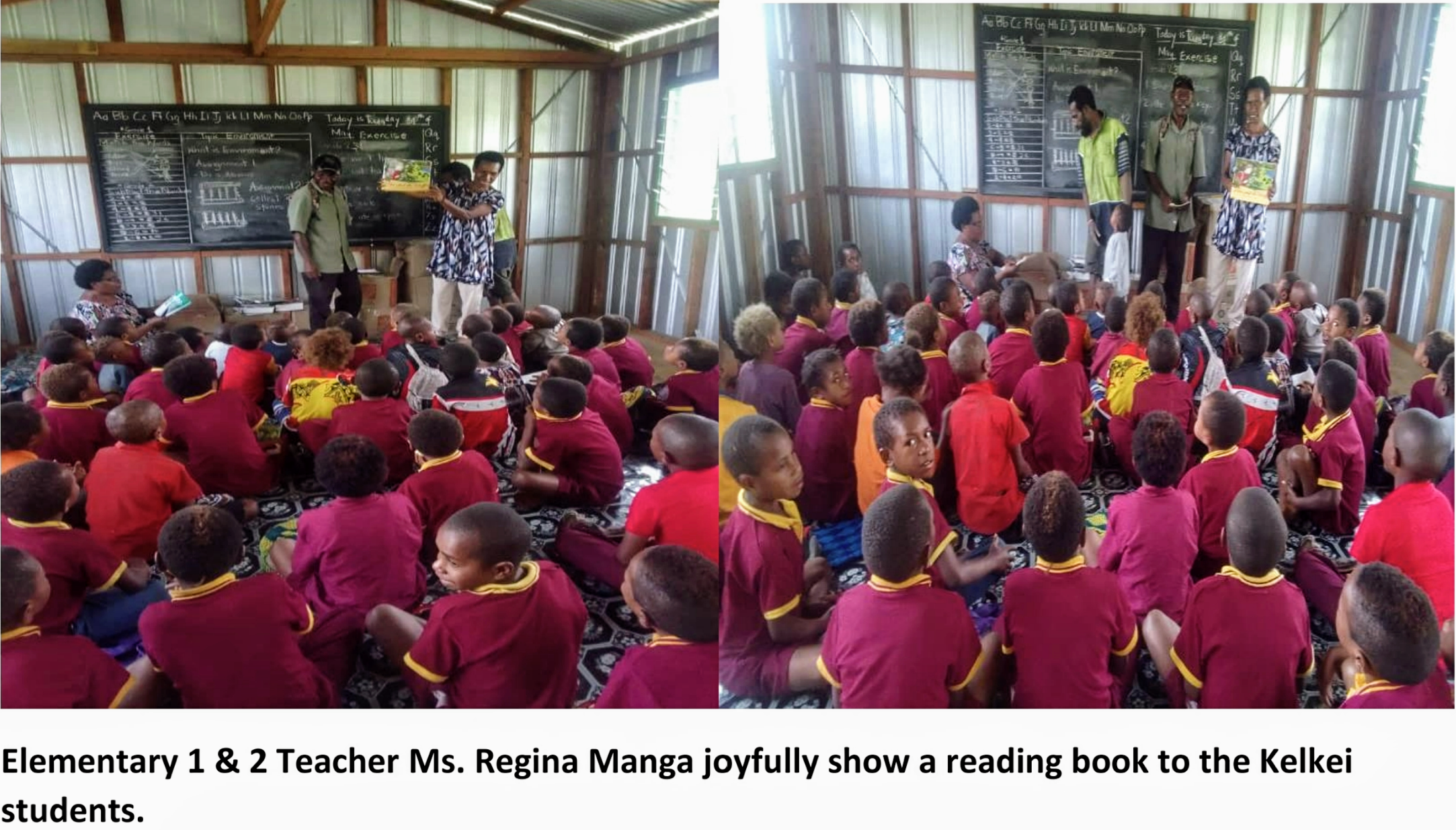
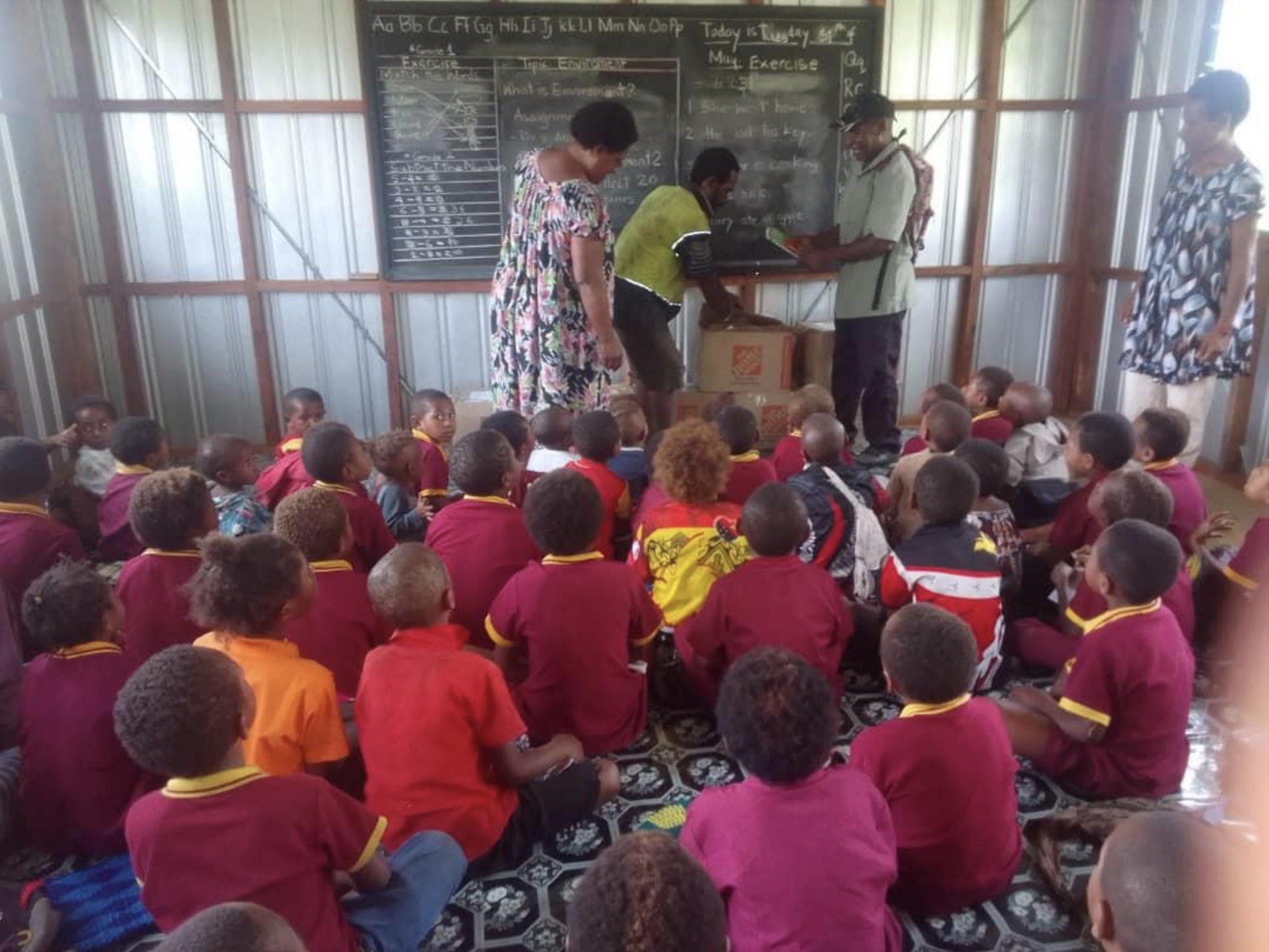
Read more about the handing over of the books and report from founder and School Secretary, Mrs. Pauline Woti here
